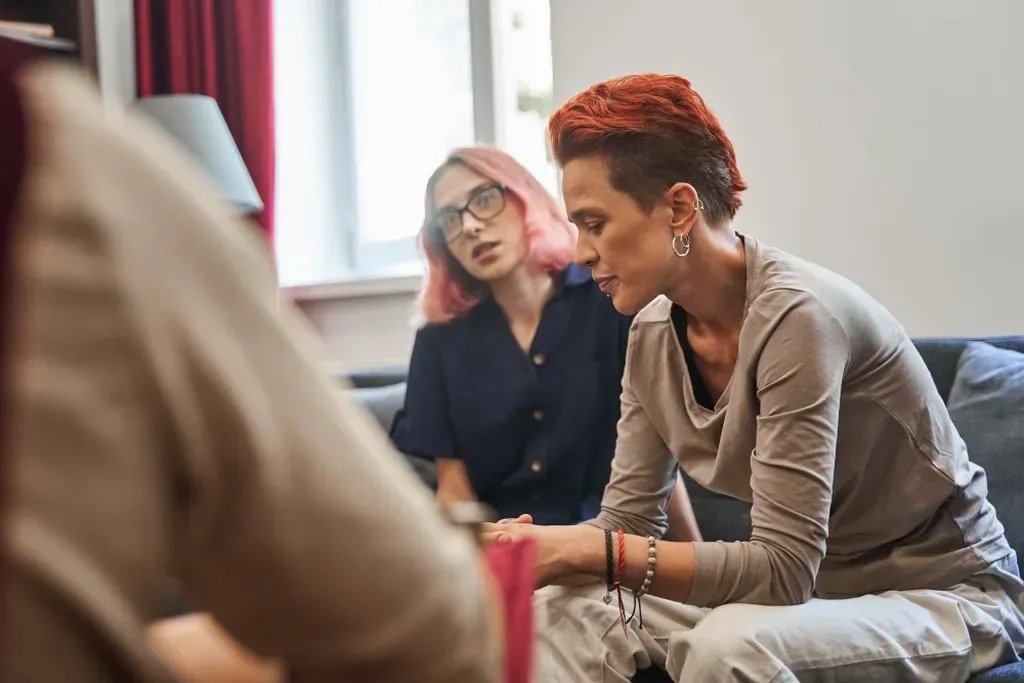Couples Therapy: Understanding Why It's Important to Invest In Your Relationship
You don't buy a car or a condo and then just hope that it holds up without investing time and money in maintenance. You want your relationship to last longer than a car or a home: You want it to last a lifetime. Couples therapy helps get you there.
When you first fall in love, your body floods with hormones like oxytocin and dopamine that make you feel fantastic and let you view the world through those proverbial rose-colored glasses. You feel wonderful, your partner is wonderful, and all is right.
But these euphoric feelings are accompanied by a deactivation of key areas of your brain, including your prefrontal cortex. With lowered executive functioning, you can miss potential areas of conflict.
That’s why, when you’re in the full flush of love, the idea of seeking couples therapy seems counterproductive; you don’t yet have any couples concerns. The future seems bright and virtually guaranteed.
No matter where you are in your relationship, however, you can always benefit from building stronger communication skills. In a study of couples around age 60 who’d been married for at least 30 years, getting counseling before they “needed” it improved their marriages.
Led by Maggie Vaughan, MFT, PhD, our team at Happy Apple in New York City are committed to helping you and your partner build the best relationship possible. You can work with us in person at our Columbus Circle office or have your sessions online through our HIPAA-secure private portal.
Should you invest in couples therapy? Here are just a few reasons why your time in counseling gives you benefits that last a lifetime.
You learn to trust and attach
In the beginning of a relationship, when that prefrontal cortex takes the back seat, it’s easy to feel attached to your partner. As you learn more about each other, you notice differences that may trigger negative emotions.
To self-protect, you may detach or even become distrustful of your partner because they’re not as much like you as you once thought. You may withhold your emotions, thoughts, and affection because you’re not sure you’d get a reaction you want.
In couples counseling, a neutral third party provides a safe space for both of you to express all of your feelings — including the negative ones. You learn how each of you is wounded and how you’ve developed patterns of behavior to protect yourselves from those wounds.
By sharing your real feelings and thoughts in a safe space, you gain a greater understanding of each other as unique beings. You also learn how to support one another by using techniques, such as those you can learn in emotionally focused therapy (EFT), to recognize and express your needs.
With time and practice, your attachment bond grows stronger. You learn to respond to your partner’s needs while still maintaining your own boundaries.
You handle conflict more deftly
Conflict is part of life, and that certainly includes a romantic partnership. You can disagree about important issues, such as whether or where to attend a place of worship, or minor ones, like not cleaning the bathroom sink after each use.
Often, your initial, knee-jerk response to a conflict is to see the other person as wrong or misguided. You may even feel that their difference is a kind of attack on your own perspective.
Through various counseling techniques — such as EFT, the Gottman Method, and internal family systems (IFS) — you learn not to take these differences personally. You view your partner’s opinions and actions objectively, and not as a judgment on your own point of view.
You learn how to use language that invites information, rather than judges. Instead of using “you” statements that imply blame, such as “you shouldn’t do that,” you transform them to “I” statements that state simply how you feel at the moment, such as, “I don’t feel comfortable hearing remarks like that.”
These techniques help you avoid arguments in your relationship and find compromises that satisfy both of you. You can apply these techniques to all aspects of your life, which leads to stronger friendships, more trust at work, and a happier family life.
You increase your emotional intelligence
One benefit of counseling is that you become more aware of your own feelings. You’re no longer steered by unconscious wounds or overwhelmed by emotions. You learn to identify them, name them, and deal with them.
As part of your experience with couples therapy, you may discover that you have unresolved personal issues — such as underlying depression or anxiety — that prevent you from feeling as confident and safe as you should. Therapy can improve a wide variety of personal, as well as partnership, issues, including:
Depression
Anxiety
Substance abuse
Phobias
Trauma
Chronic pain
Just as you need to address underlying root causes to relieve physical symptoms, finding and treating the root causes can relieve emotional distress, too.
To find out how you and your significant other could benefit from couples therapy — whether you “need” it or not — contact our Happy Apple team today.


